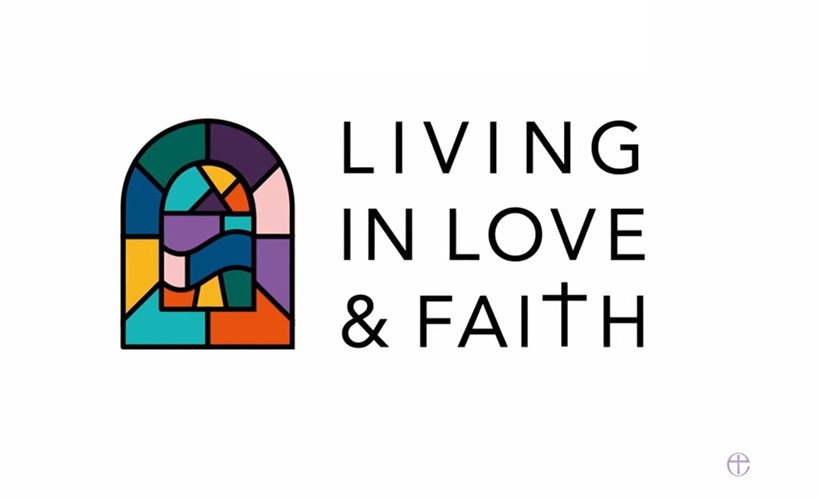Prayers asking for God’s blessing on same-sex couples as they give thanks for their civil marriage or civil partnership are published today.
The draft texts, proposed by the bishops of the Church of England, will be considered by General Synod next month alongside other proposals in response to a six-year process of listening, learning and discernment on questions of identity, sexuality, relationships and marriage known as Living in Love and Faith.
The bishops have also made a direct public apology to LGBTQI+ people for the way in which the Church has rejected or excluded them, admitting: “We have not loved you as God loves you, and that is profoundly wrong.”
The apology is set out in a pastoral letter from the bishops of the Church of England which also recognises that they disagree over same-sex marriage and proposes a way forward which could be put in action within months.
A report – Living in Love and Faith: A response from the Bishops of the Church of England about identity, sexuality, relationships and marriage – sets out the bishops’ proposals and recommends areas for further work.
There is also a book of draft worship resources – Prayers of Love and Faith. It is a range of prayers and readings which could be used in a church service, such as a Service of the Word or a Service within a Celebration of Holy Communion.
There are prayers of thanksgiving and dedication and a prayer for God’s blessing as well as prayers for use with specific elements of a service, such as a Prayer when Rings are Worn and Prayers at the lighting of a candle.
Opening the letter the bishops write: “We want to apologise for the ways in which the Church of England has treated LGBTQI+ people – both those who worship in our churches and those who do not.
“For the times we have rejected or excluded you, and those you love, we are deeply sorry.
“The occasions on which you have received a hostile and homophobic response in our churches are shameful and for this we repent.
“As we have listened, we have been told time and time again how we have failed LGBTQI+ people.
“We have not loved you as God loves you, and that is profoundly wrong. We affirm, publicly and unequivocally, that LGBTQI+ people are welcome and valued: we are all children of God.”
Describing the prayers and readings, they explain: “This resource will offer clergy a variety of flexible ways to affirm and celebrate same-sex couples in church, and will include prayers of dedication, thanksgiving and for God’s blessing.”
They continue: “This resource will represent a significant move that is intended as a loving and celebratory response to same-sex couples who are cherished and deeply valued by the Church.”
They explain that the prayers will be entirely discretionary and that the formal teaching of the Church of England as set out in the canons and authorised liturgies – that Holy Matrimony is between one man and one woman for life – would not change.
“While there is a range of convictions held by the bishops about this important matter, we have not found sufficient consensus to propose a change in doctrine at the present time,” they write.
The bishops’ proposals will be discussed in detail at General Synod which meets at Church House, Westminster, from February 6 to 9.
The Bishop of London, Sarah Mullally, who chaired the group which led the process of discernment and decision making, said: “We are so grateful to the thousands of people across the Church of England who have taken part in this unique exercise in listening and learning together.
“I would like to thank all those who took part, sharing often deeply personal experiences, with great patience and courage.
“This has shown us vividly the diverse beliefs and hopes that are found among those who call the Church of England their spiritual home.
“We have taken all of those responses to heart and they have been vital in helping shape the proposals which we are putting forward today.”
More information
- Draft Prayers of Love and Faith
- A response from the Bishops of the Church of England about identity, sexuality, relationships and marriage
- Read the full agenda for the February 2023 group of sessions
Synod will debate the Following motion on February 8:
‘That this Synod, recognising the commitment to learning and deep listening to God and to each other of the Living in Love and Faith process, and desiring with God’s help to journey together while acknowledging the different deeply held convictions within the Church:
- (a) lament and repent of the failure of the Church to be welcoming to LGBTQI+ people and the harm that LGBTQI+ people have experienced and continue to experience in the life of the Church;
- (b) recommit to our shared witness to God’s love for and acceptance of every person by continuing to embed the Pastoral Principles in our life together locally and nationally;
- (c) commend the continued learning together enabled by the Living in Love and Faith process and resources in relation to identity, sexuality, relationships and marriage;
- (d) welcome the decision of the House of Bishops to replace Issues in Human Sexuality with new pastoral guidance;
- (e) welcome the response from the College of Bishops and look forward to the House of Bishops further refining, commending and issuing the Prayers of Love and Faith described in GS 2289 and its Annexes;
- (f) invite the House of Bishops to monitor the Church’s use of and response to the Prayers of Love and Faith, once they have been commended and published, and to report back to Synod in five years’ time.’


